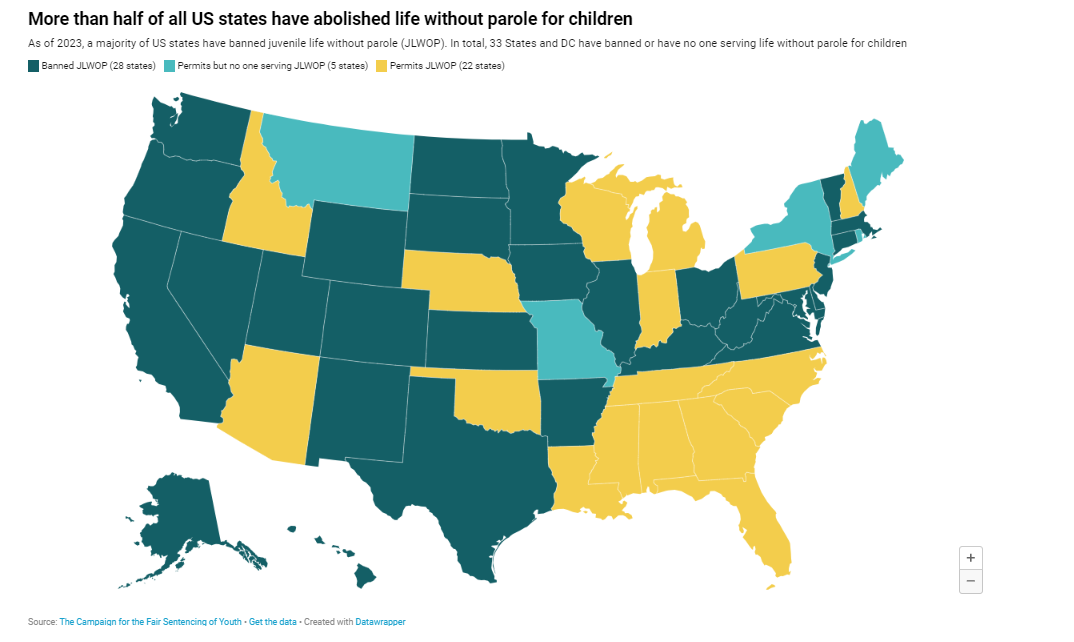Gulf South States Lead US in Number of Juvenile LWOP Sentences
77% of new juvenile life without parole sentences given to Black children

According to a recent report from the The Campaign for the Fair Sentencing of Youth, Mississippi, Alabama and Georgia are among the states that top the nation in new juvenile life without parole (JLWOP) sentences since 2012. However, Michigan has the largest population serving JLWOP in the world.
28 states have banned juvenile life without parole altogether, and five more have no one serving the sentence. Michigan, Louisiana, Mississippi and Alabama, however, were among a group of 10 states the report identifies as having the most people still imprisoned under juvenile life without parole sentences. Many people serving such sentences are eligible to have their cases reviewed. The Supreme Court decision in Miller v. Alabama (2012), which said that said most crimes aren't eligible for JLWOP and that judges must seriously weigh youth as a mitigating factor before giving such a sentence and old sentences deserve a second look with new standard, paved the way for the resentencing of thousands of individuals serving life without parole for crimes committed as children. However, there has been uneven access to SCOTUS-authorized re-sentencings as hundreds have not been afforded a hearing. In fact, of all the individuals serving JLWOP today, over two-thirds have been awaiting a resentencing hearing since 2012.
Additionally, racial disparities for JLWOP are worsening, with 77% of new juvenile life without parole sentences given to Black children, up from 61% before the 2012 Miller SCOUTS decision. This is not reflective of Black children committing more crime, but rather how the long-established presence of racial bias in justice and carceral systems respond more harshly to crime committed by Black children than crime committed by white children. In states that have yet to ban JLWOP and are home to the highest rates of post-Miller JLWOP, racial disparities have particularly worsened. The protections in Miller alone have failed to protect Black children from the continuation of this sentence’s racist history.
In general, JLWOP "forecloses the possibility of redemption," Alabama civil rights attorney Lauren Faraino said. "I like to believe we're in a world where people can change, and grow, and show that they can live safely amongst society."
You can read and download the full report "Juvenile Life Without Parole: Unusual and Unequal" at the website for The Campaign for the Fair Sentencing Of Youth. The organization's mission is to catalyze the just and equitable treatment of children in the United States by demanding a ban on life without parole and other extreme sentences for children who cause harm; advancing alternative responses that focus on their unique characteristics as children, including their capacity for change; and creating opportunities for formerly incarcerated youth to thrive as adults and lead in their communities.










